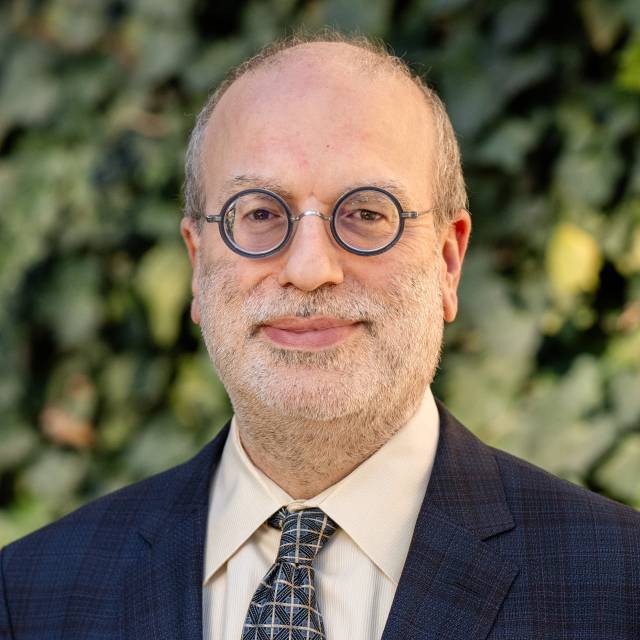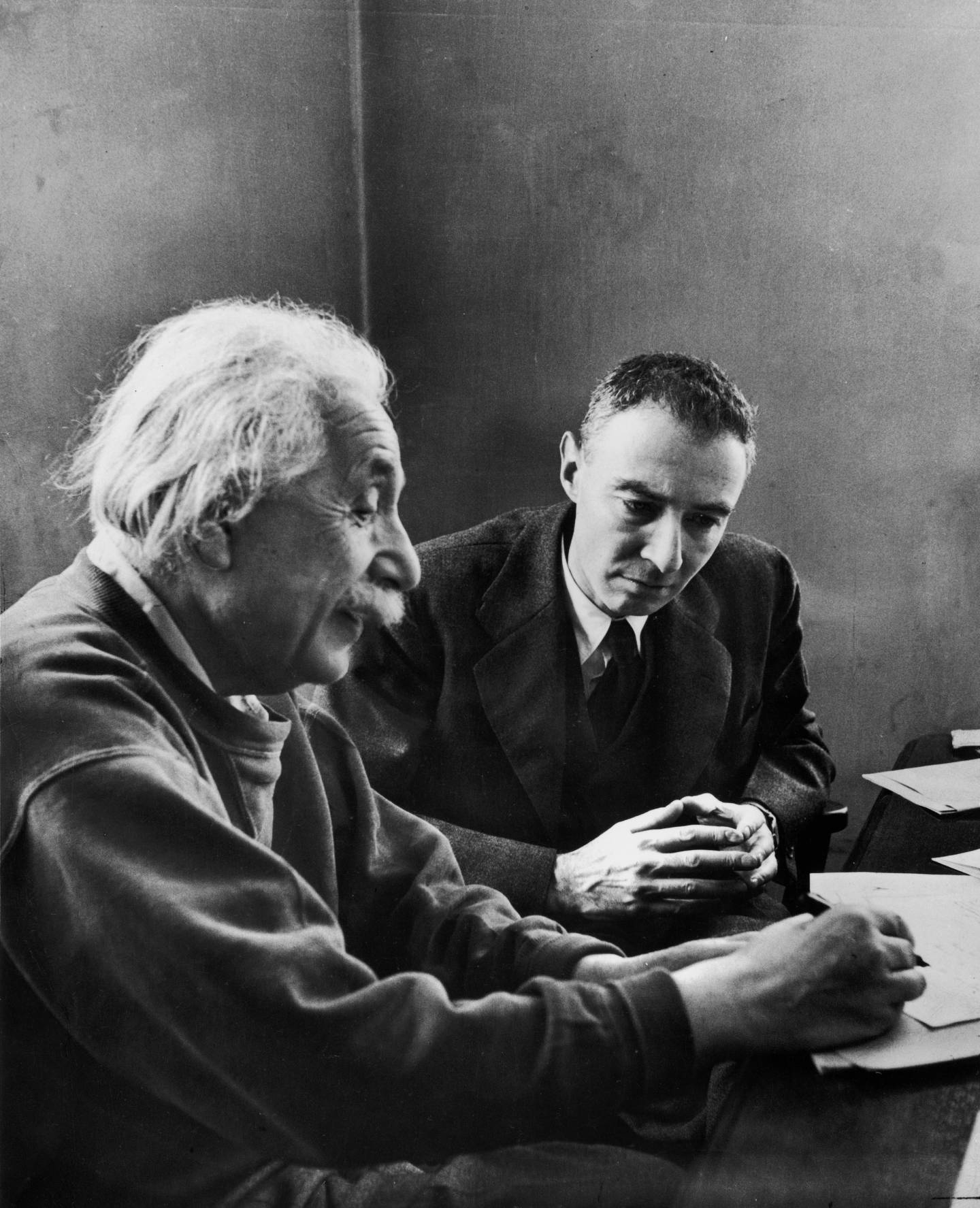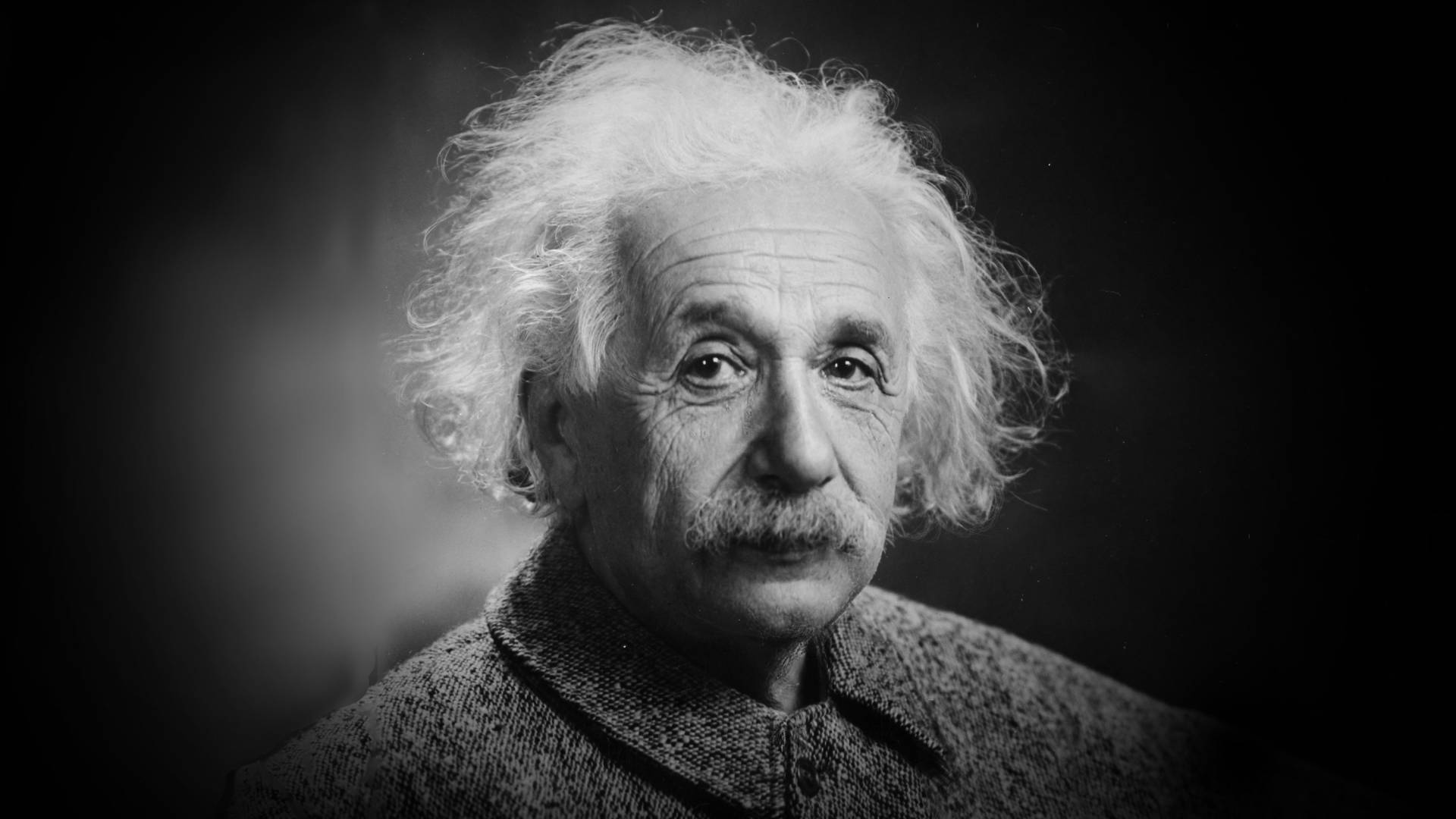Albert Einstein in 1947
We talked with historian of science Michael Gordin, Princeton’s dean of the college, who has taught the popular course “The Einstein Era,” about the life and times of Princeton's most famous resident, Albert Einstein, who lived here from 1933 until his death in 1955. Gordin is also the co-author, with Diana L. Kormos-Buchwald, of “Free Creations of the Human Mind: The Worlds of Albert Einstein,” coming out in May 2025 as part of the Oxford Very Short Introduction book series.
Here, Gordin talks about his famous subject. This interview has been expanded and updated since it originally appeared for Pi Day 2022.

Michael Gordin
Albert Einstein's birthday is on March 14 — 3/14 — which is celebrated as Pi Day. Did he ever make jokes about that?
No, in part because as a European, he would have written the date as 14/3. I wrote a little piece about this, a blog for Princeton University Press that gives you the history of when Pi Day became a thing. I think Pi Day caught people’s imagination because it happens to be Einstein's birthday, but I haven’t seen any comments from him about it.
How did you come to teach “The Einstein Era”?
I’ve wanted to teach this course for 15 years!
Albert Einstein is the most renowned, and most recognizable, scientist of the 20th century — and possibly of all time. It’s astonishing how famous he was and remains. Every single student in this class not only has heard of Einstein, but they also know exactly what he looks like, and they know stories about him. It is weird for people who by and large were born in the 21st century to have a guy born in 1879 as a feature of their cultural world.
What has your goal been in offering this course?
As a historian of science, I’ve long been committed to trying to create courses where you have scientists learn something about culture and history, and you have humanists and social scientists learn that they can understand relativity theory, that that’s not a bridge too far.
Having them both in the same class means that those students learn from each other, and it helps break down some of that divide between science and the humanities.
Another goal is that I want people to actually experience what historians do: read archival material, such as unpublished correspondence, and learn how to work with it. In Firestone Library, we have a duplicate of a large chunk of Albert Einstein’s archive. This course is designed around getting the students into Firestone, into Special Collections, so they can look through these documents and learn how to write papers about them.
For example, here’s a letter someone from India wrote to him about Gandhi’s assassin. What’s going on in this letter? Why is this person writing to Einstein?
And the third goal is that I think a lot of Einstein’s political and philosophical views are quite compelling, and people are not always aware of them. People know he was a brilliant physicist, but just to see how his mind tackled problems like national sovereignty, citizenship, war, treatment of minorities, all of those things — he had very distinctive and often quite subtle views, and I wanted people to engage with those.
You became Dean of the College on July 1, 2024. Do you take any guidance from your knowledge of Einstein in this new role?
Not directly, because Einstein was famously terrible at organizing almost anything. He was director of an institute, but it was run mostly by other people.
Do you still find time to think about Einstein?
Yes, actually, quite a bit! Beyond the usual wondering about Einstein that I ordinarily do, I have cowritten a short biography with Diana L. Kormos-Buchwald, who’s the editor of The Einstein Papers Project. And when I say short, I mean really short, like 110 pages. Diana and I put our heads together and figured out a way to compress a guy — who is usually dealt with in 700-plus-page momentous biographies — into a brief biographical and intellectual study that does not require any extensive background in science or European history — or the lumbar support needed to hold one of those massive tomes! We did almost all the writing while I was on sabbatical in Berlin and she was living in Caltech, so we traded messages and drafts across an ocean.
How do you define the era of Einstein?
For the class, the era is basically his lifespan: from just after the unification of Germany to the early Cold War. From the fin de siècle transformations in science through World War I, World War II, and then a bit of the early Cold War and McCarthyism.
This course starts with European history, until Einstein moves to the U.S. in the early 1930s, and then it becomes focused on the U.S. I’m using Einstein’s life as a way to do a different kind of history course, where themes like Zionism, Nazism and pacifism are more central to how one defines what’s going on than geography or one specific theme — to let the sets of issues Einstein was interested in help structure what we cover.
What’s one of the misconceptions about Einstein your class challenges?
When people write Einstein biographies, they spend a lot of time in the young period talking about science and a lot of time in the older period talking about politics — as though there was a scientific, non-political young Einstein and a totally political, non-scientific older Einstein.
That’s just not right.
In 1905, he published three papers — that’s his classic “miracle year” — and then a decade later, in 1915, he published general relativity. The first political item I know of was in 1914, when he signed a manifesto against World War I. There had been a huge manifesto, from 93 very distinguished Germans, defending German war aims, and Einstein signed a counter manifesto, with three other people. It’s the first political thing he did, and it was a big political thing that was highly unpopular.
As the war went on, his pacifism and his opposition to war galvanized him towards international cooperation. And then as he got older, those themes evolved. The pacifism theme became opposition to nuclear weapons and the nuclear arms race. The defense of persecuted minorities — which at first referred to Eastern European Jews — was transformed into support for African American civil rights.
Ultimately, it’s the tension between pacifism and protecting minorities and disenfranchised groups that led to his tensions with Zionism. He ended up breaking with the movement, in part because his two main pillars had a hard time reconciling.
If he lived into the McCarthy era, he also lived to see the formation of the State of Israel.
Not just live to see it: In 1952, when the first President of Israel died — Chaim Weizmann, who was a British-Polish chemist that Einstein knew — they offered Einstein the presidency. He declined. He felt he wasn't suited to the job.
How did he get involved in civil rights in the U.S.?
Through the mediation of Paul Robeson. They had met in Berlin, but Robeson was from Princeton, so when Einstein moved to Princeton, they reconnected. This is part of why the FBI got interested in Einstein; they would have been interested anyway, but Robeson was a communist, and Einstein was comfortable speaking with African American communists.
The version of the Civil Rights era that we are all taught, the one focused on Martin Luther King, hadn’t started yet, but the military was desegregated in the late 1940s, as the result of tremendous pressure. Anti-lynching activism had been happening since the 1930s.
Einstein was aware of all of that, even before he moved to Princeton. W.E.B. Du Bois wrote him a letter saying, Would you say something about African Americans publicly? So he did, he said they deserve equal rights, that they are Americans, no less than anybody else who is here.
He became a citizen in 1940, and he was even more explicit after that. He also accepted an honorary degree from Lincoln University, which is an HBCU, a historically black college or university, which I believe is the only honorary degree he accepted after moving to the U.S.
He was also quite actively engaged with the African American community of Princeton. That was a thing that mattered to him. World peace mattered to him a great deal. So those were the political aspects that he was very, very actively interested in, even as the science was going on.
What are some of Einstein’s later scientific accomplishments?
Throughout his entire career, he was always tinkering and inventing — he invented a refrigerator, among other things. He continued to do that kind of work all the way through his life. But the main two areas he was heavily invested in from the 1920s onward were quantum mechanics and Unified Field Theory. And both of these were kind of disappointing in how they turned out, and they created an image that Einstein had a rise and then a fall intellectually. I don’t think that’s accurate, but it’s a common way it’s depicted in biographies.
More than a century later, we have proposals for unification — superstring theory and many other theories of quantum gravity are basically built around trying to finish this project — and we still haven’t finished it. So we shouldn’t be too hard on Einstein for failing at this project almost a century ago.
How did he come to Princeton?
His first visit to Princeton was to Princeton University in 1921, where he gave a lecture on relativity theory, but he was never on the Princeton faculty. He was one of the initial faculty of the Institute for Advanced Study, and IAS is not part of the University. There are of course collaborations, but they’re separate institutions.
So he was hired as one of the initial IAS faculty in 1933. However, their campus wasn’t built yet, so he had an office on Princeton University’s campus, which is part of the reason people think he was on the faculty here. The University was happy to host him, but he was “at” the IAS. After their campus was built, he could of course come to the University whenever he wanted to, and he did occasionally. He engaged with student groups from time to time, especially peace-related ones.
The film “Oppenheimer,” filmed in part here in Princeton, N.J., showed Einstein and J. Robert Oppenheimer in the Institute Woods. Did they really cross paths here?
Oh, they did much more than cross paths. They overlapped by almost a decade. Oppenheimer directed the Institute for Advanced Study from 1947 to 1966, and Einstein was a faculty member there from 1933 until his death in 1955.

J. Robert Oppenheimer (right) with Albert Einstein at the Institute for Advanced Study, 1947.
When I saw the movie — the History Department rented out the Garden Theatre so we could all see it together — I mostly liked it, but I really disliked the portrayal of Einstein. The movie shows Oppenheimer sort of off-camera consulting Einstein, and sometimes behind Einstein’s back saying dismissive things about Einstein. What it doesn’t show is Einstein comforting Oppenheimer.
In the beginning, there had been a lot of tension between them. Oppenheimer was pretty dismissive of Einstein, especially in the late ’40s. But then after the security clearance hearing, Einstein was one of the leaders of a group of faculty writing a letter in support of Oppenheimer. He also went and visited Oppenheimer almost immediately afterwards. Oppenheimer was crushed, and Einstein said, kind of, Buck up. It’s OK. It’s not the end of the world. Even though Oppenheimer at times could be an arrogant schmuck, Einstein stepped forward and said, this guy has been treated badly, and he shouldn’t be treated that way. Einstein knew what it was like to be persecuted.
Oh, and since we're talking about Pi Day, I want to tell you — Oppenheimer's trademark hat is called the porkpie. It’s a pork-Pi hat.
What was Einstein like as a member of the Princeton community?
He was very active in the town. He was well known by the residents — of course, he was the most famous person in the world at that time, and he was very visible. But a lot of the townspeople said he was very polite, and very, very kind. He especially enjoyed talking to children.
In the late 1930s, he was heavily involved with refugee-related issues, as people were fleeing Central Europe. He had a social circle of émigré scholars, who were all through the town either at the Institute or at the University. He also interacted with colleagues and students at the University. So he wandered through and met people there, and he interacted with people downtown.
He went for walks every day — he loved going on walks, through his entire life — and he would cross what is now Paul Robeson Place into the historically African American part of town, and he would socialize and say hello to people. He was very unprejudiced in those interactions.
There are a lot of people with very fond memories of Einstein. There’s probably a selection effect, but there really aren’t a lot of recollections of people from Princeton saying Einstein was a terrible person.
What biographies or other sources would you recommend to someone who wants to learn more?
My syllabus is available on my website. But one book I would recommend is “Einstein on Politics.” It’s a nice fat book, with some of his best writings on issues like pacifism, socialism, the Nazis, peace, nuclear weapons, etc. That’s a great book, and it’s well edited with short essays that help contextualize the material.
There are a couple of biographies; the most readable is Walter Isaacson’s, which was made into the National Geographic miniseries. That’s a good way of getting an overview of his whole life. The one I prefer is by Albrecht Fölsing, written in German and translated into English; it’s more detailed, more comprehensive. But I recommend starting with “Einstein on Politics.” It will give you the deepest dive into his own words, with enough historical context around them so that those pieces make sense. The discussions we have in class out of this book are terrific.
